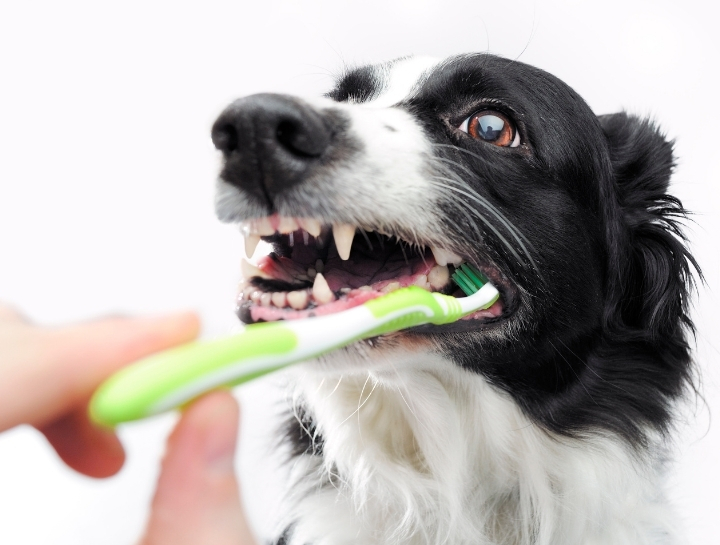Pet Dental

Dental disease is a very common problem for both cats and dogs. It can also be dangerous to your pet’s health and well-being if it is left untreated. Serious conditions like kidney failure and heart disease are common in pets whose dental issues have not been addressed. Responsible pet owners stay on top of their pet’s dental care.
Why do pets need dental care?
Failure to provide dental care for your pet can cause a wide range of dental and health issues including:
- Bad breath
- Plaque buildup
- Dental pain
- Tooth loss
- Ulcerations of the gums and inner lip
- Exposure of the roots of teeth
- Receding gums
 Serious health problems can come from these issues, leading to an inability to eat. Oral lesions can give toxins and harmful bacteria easy access to the pet’s bloodstream, causing illness and even death. The bacteria can attack the heart lining or heart valves. It can also cause joint problems and kidney damage. Your pet’s dental health should be a priority and a regular part of his normal care.
Serious health problems can come from these issues, leading to an inability to eat. Oral lesions can give toxins and harmful bacteria easy access to the pet’s bloodstream, causing illness and even death. The bacteria can attack the heart lining or heart valves. It can also cause joint problems and kidney damage. Your pet’s dental health should be a priority and a regular part of his normal care.
What are the signs of pet dental problems?
It is important that pet owners are able to identify pet dental diseases before they get to a point where they are a threat to the pet’s overall health and well-being. Some common signs of pet dental disease include:
- Teeth that are covered in tartar
- Bad breath
- Difficulty eating (dropping food while eating)
- Discolored teeth
- Bleeding in the mouth
- Excessive drooling
- Inflamed gums
- Lesions on the gums and inner lips
- Cysts under the tongue
- Loose teeth (not baby teeth)
- Appetite loss
- Weight loss (without reduction in feed)
- Pet does not want you to touch its mouth or try to touch around its mouth
If you see any of these signs you should get your pet to the veterinarian as soon as possible so he can assess the situation and get a handle on the problem before it gets too bad.
Does food make a difference?
Natural dog foods are a good choice for helping to keep your pet healthy. However, dog food alone is not an effective way to reduce plaque or clean the teeth. In fact, most kibble has a very high amount of refined carbs. This could be counterproductive and actually increase the tartar and plaque. Natural dog foods are your best bet, but if that is not an option for you there are other things that can help as well.
Meaty, raw bones have a texture that is mildly abrasive and they are somewhat flexible so they can help to remove dental plaque in pets. Cooked bones should not be used under any circumstances - especially poultry. They can splinter and cause digestion problems. Uncooked bones, even poultry, can be used. Care should be taken, though, to not use leg bones (weight bearing) that come from larger animals because they can splinter and cause damage to the pet.
Is brushing necessary?
Many veterinarians believe in brushing a pet’s teeth daily. This is usually easier said than done, but if you choose to undertake the task, use a very soft, baby toothbrush and a pet toothpaste. It is also important to get regular dental cleanings as well. Brushing is an effective way to prevent many pet dental problems.
How often should a pet get dental checkups?
Your pet should have regular dental checkups every year as long as you don’t see a problem. If you do not a problem, especially if it is one of the signs of dental disease listed above, your pet should be seen by a veterinarian immediately. You love your pet and want the best for him. They can’t tell you that they hurt, or where. This means that you have to be a good pet parent and stay in tune with your pet. As soon as you notice unusual behavior, check him out or have a vet check him. Take good care of your pet; he is depending on you.
